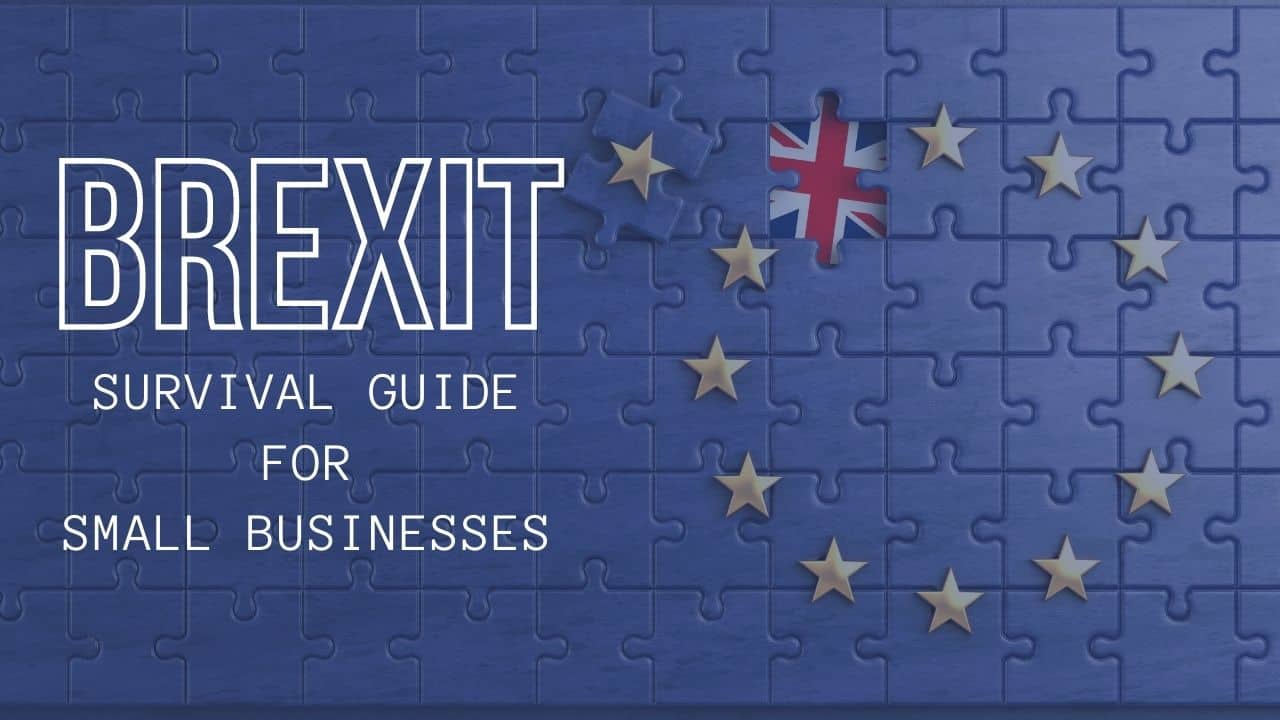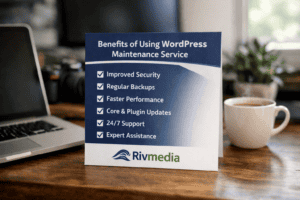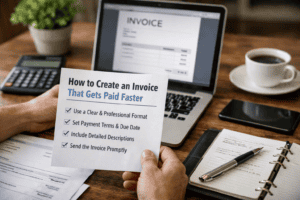Table of Contents

Brexit has happened, and the United Kingdom is out of the European Union. Ok, kind of. Find out how to prepare your company during the transition phase, and find out what’s likely to occur in 2021.
Officially, the United Kingdom has now left the European Union – but a one-year transition period means that everything will remain the same more or less until 2021.
A lot will change next year, though. A new immigration policy designed to reduce unskilled migration has already been unveiled (and strongly criticized by a large part of the business community) and an intense period of negotiation will decide on issues such as customs tariffs, data flows and taxes.
All this has the potential to have a significant effect on smaller businesses, so, like every good scout, you have to be ready.
This survival guide explains exactly what the transitional phase is, break down the implications of the new UK Immigration Bill, and provide expert insight into how your small business should really be preparing for the 2021 Brexit after the transition period.
What’s Going On With Brexit?
Big Ben may not have been sounded, but the United Kingdom formally left the European Union on 31 January 2020.
You may be forgiven for believing that not much has changed – the withdrawal agreement signed by the united kingdom government and the EU agreed to a one-year transition period. Ultimately this means that for 11 months after Britain leaves the EU, it effectively acts as if the UK were still in the EU, with no import restrictions, no visa problems or anything else to think about.
Indeed, the main difference during the transition phase is that if you get a new passport, it could be blue instead of burgundy.
The date that small businesses really need to think about is 1 January 2021.
If the United Kingdom sticks to its guns and refuses to prolong the transitional duration, this is the date on which Brexit begins to feel like Brexit – the United Kingdom will have to either leave the EU on whatever terms are negotiated in 2020 or crashes in a no-deal scenario.
Before that happens, there is undoubtedly the most important time of negotiation in the history of the United Kingdom.
The main thing that needs to be determined is the conditions on which the United Kingdom and the EU can communicate with each other – but other key areas include freedom of travel, how data transfers between the United Kingdom and the EU will be handled, and how taxes such as VAT can be affected.
But let’s dive right in, beginning with the training and recruiting of staff – including the controversial new immigration scheme.
Brexit Workforce & Recruitment Changes
Throughout the Brexit process, small business owners were rightly nervous about how Brexit would have an effect on their ability to attract and retain Eu citizens.
Here, we take a thorough look at this problem, looking at the situation for both the current workforce and possible future arrivals.
Current workforce
As with so much of Brexit, significant improvements are not anticipated in the short term – the key thing that UK small business owners need to think about is ensuring that all workers who are not already UK citizens apply for UK settled status.
Those who have been permanently resident in the United Kingdom for a period of five years or more by 31 December 2020 may apply for settled status.
Anyone who has been living in the United Kingdom for less than five years and arrives by 31 December 2020 will apply for a pre-established status and then apply for a settled status once they have lived in the United Kingdom for five years.
Settled status grants the workers the same rights as the people of the United Kingdom and the freedom to live in post-Brexit status.
The system has been available since 30 March 2019, and the deadline for applications is 30 June 2021.
No amendments will be made to the UK Jobs Legislation during the transitional phase.
Robert Bates, a jobs specialist at Jordans Solicitors, says that staff in the United Kingdom will now continue to have the privileges they have under current UK law.
“This includes certain laws that derive from EU law, such as rules on working hours, entitlements to parental leave and legislation to avoid discrimination.”
Moreover, as this review of employment law by law firm Brodies reveals, any potential amendments to these laws would depend on the trade agreement concluded between the United Kingdom and the EU.
In addition, in many cases, UK legislation is either in line with or exceeds EU legislation – meaning that substantial changes are also unlikely.
Recruitment – the new immigration system
There seems to be a lot we don’t know about the UK post-Brexit.
However, the latest immigration bill released on 19 February gives us a very clear idea of what the border and immigration system will look like in 2021.
The old method has been absolutely done away with, and now comes the long-discussed point system.
In order to be eligible to work in the United Kingdom, a person will have to score 70 points and meet three main requirements.
A complete list of identified shortage occupations can be found on the Gov.uk website.
The key rule is simple – freedom of movement as we know it’s done.
This argument was strengthened by the briefing paper accompanying the bill, which stated:
“UK companies will need to adapt and adjust to the end of free movement, and we will not aim to replicate the benefits of free movement within the point-based framework.”
This groundbreaking reform has been complemented by further reforms to leave a radically different United Kingdom immigration structure.
Analyzing the bill, Jennifer Pinder, a senior associate in the Capital Law Jobs Team, identified four main places where the proposed immigration system varies from the existing one:
Work Offers – The new system is a true point-based system, in a way that our existing system is not. Individuals need to hit 70 points in order to be granted a visa, and although certain points can be exchanged, other requirements must be met in order to be granted a visa. Most notably, individuals will continue to require a work offer until they come to the United Kingdom.
Salary and Skill Level – The skill level for positions to be filled must be A-level or higher. This is a reform of the existing immigration scheme, which only encourages non-EU residents to enter the United Kingdom to perform degree-level positions. Similarly, the minimum wage rate has been lowered to £25,600 (or £20,480 if you can receive bonus points elsewhere).
Visa limit – The annual number of visas granted per year will no longer be capped, which has created significant difficulties for employers in recent years.
Removal of the Resident Labor Market Exam – This is an onerous procedure that employers are actually obliged to carry out before hiring anyone from outside the United Kingdom. Removing this provision would be good news for employers.
The reaction of the UK business community was overwhelmingly negative, with many apprehensive about the effect that a dramatic reduction in low-skilled EU migration may have on the UK economy.
Tom Hadley, Director of Policy and Initiatives at the Jobs and Job Confederation, was highly critical, arguing:
“The government finds ‘low-skilled’ employment to be critical to the well-being and business development. The decision threatens to close down the resources we need to deliver services that the public depends on. This would raise the possibility of illegal work and abuse. In the US, more than half of farmworkers and 15% of construction workers are undocumented.
There is nobody that wants the UK to be in this position because of the lack of an official low-skilled immigration path, where disadvantaged workers would suffer. We need access to staff who can help us look after the elderly, build homes and keep the economy healthy.
Industries who employ a high number of EU employees were understandably worried, with Paul Thrupp, Chairman of the British Cleaning Council, saying, “These plans will strangle our industry by cutting off ease of access to low-skilled, low-paid, foreign employment that we rely on.” He added, “With the lowest unemployment in the United Kingdom for years, there is no hope that UK-born employees would be able to do so.”
Hospitality will also be affected. Johan De Jager, UK Country Manager at the Brigade Hospitality Recruitment Firm, said that “restricting the ability of foreign nationals to work in the industry risks diminishing the pool of skilled professionals with enormous potential.”
And Shara Pledger, an immigration associate at Latitude Law, expressed the views of many when she stated:
“The government’s immigration policies are, at best, short-sighted and, at worst, a continuation of the hostile atmosphere we have seen in the last decade of conservative rule.
“Many sectors and industries would be disproportionately impacted by the revised point-based framework, including agriculture, hospitality and tourism, social care, retail, food processing and food services.
“The government’s suggestion that these sectors should simply ‘adapt and adjust’ to what is likely to be a substantial skills deficit demonstrates just how little attention it pays to the big issues posed by business leaders across the United Kingdom.”
Mike Cherry who is National Chairman of the Federation of Small Businesses, however, was more hopeful, saying:
“We see the advantages of a point-based model as long as it is easy to use and accessible for small businesses – almost all of which have no knowledge in using our current immigration process.”
He also added that the cost of the Tier 2 visa needs to be decreased (at present it can cost a small employer over 3,000 pounds) and argued that “typically small firms hiring from the EU do so in medium or high-skilled positions.”
Overall, the effect of these changes on small companies would depend on two factors:
The number of EU nationals employed on a regular basis
The competence level of the positions of EU staff
According to David Kelly, Deputy Managing Director of Labor Relations Specialist, certain businesses that are likely to be seriously impacted need to re-examine the manner in which they work.
The following goals have been identified:
Be smarter about how many people you need at any time – use easy software to connect your sales figures and other valuable information to find out who you need to work, where, and when.
Automate workers on board with dedicated software that informs new employees about areas such as health & safety at work, data management, or customer service policies.
If you are working in the hospitality field, consider investing in eMenus and self-order systems that do not need waiting for staff to order.
Workforce management software can support any company operating on a shift system by self-generating staff schedules, monitoring employee time and managing correct payroll and holiday entitlements.
Flexibility is important when recruiting younger employees. Systems that enable workers to apply their willingness to work, to make themselves available for further work, and to suggest shift transfers between them would help to recruit and maintain staff.
Be mindful of this current immigration climate; however, it will be vital for small businesses to move forward.
The new framework will be open for applications from the autumn of 2020 for applicants to operate in the UK from 1 January 2021 onwards.
Any company wishing to sponsor a worker would have to apply for a sponsor’s license first. You will find detailed information on how to do this on the Gov.uk Visa Sponsorship page.
ACTIONS
Be aware of the current immigration system and how this is going to affect your small company.
If required, apply for a sponsor license so that you will be able to sponsor and recruit new EU nationals in the future.
Consider investing in technologies and procedures that can help maintain current workers and recruit new ones.
International Trade & Movement of Goods After Brexit
There is no question that the businesses that depend on imports and exports will be the most impacted by Brexit and could be severely impacted by a bad Brexit.
It remains the same for 2020 – the United Kingdom is still basically in the single market and can trade freely with the EU as easily as in past years.
What is going to happen from 2021, indeed, is still up in the air – and resolving this is a crucial part of the talks that are taking place during the transitional phase.
On its part, the United Kingdom has announced that there will be import restrictions on EU goods, with Mr Gove – the de-facto Deputy Prime Minister – warning that EU and UK traders would have to apply customs declarations and be subject to goods checks.
This may be viewed as a bargaining stance, but the central notion in the Brexit agenda has always been to “take control back” and leave the single market, so it will take a long time for this concept to be discarded.
It also is likely that UK exporters to the EU would need to make customs declarations, with border customs inspections possibly causing significant delays.
With this scenario now becoming more likely than not, companies should negotiate future arrangements with their foreign clients and introduce contingency controls in their supply chain.
This is especially the case for small companies, which often do not have the same exposure and knowledge about their supply chains.
Research by Aldermore found that 59% of small and medium-sized companies do not completely understand their supply chains, and one in 10 assume that they will not withstand the disruption of their supply chain.
Businesses should also plan for the possible implementation of new tariffs that may impact the price and supply of products and create uncertainty as to who should bear the brunt of higher costs. You may also consider moving to a UK supplier to eliminate confusion and reduce the possible effect of any changes.
It might also be a smart idea to providing you have the room – or the ability to access more room – to buy extra of the products it needs. Of course, the number of businesses capable of using this method is small – perishable items, for example, are simply not ideal for long-term storage.
Cato Syversen, CEO of Creditsafe, Global Intelligence, gives the following advice:
“Although Brexit with a no-deal may seem unlikely, small and medium-sized companies should also be prepared for dramatic shifts in trade processes. For example, applying for an EORI (Economic Operators Registration and Identification) number is an advised course of action.
“Moreover, since we still do not know the conditions of the United Kingdom’s eventual departure from the European Union and its effect on the flow of goods and services across borders, small businesses should consider hiring a customs agent to streamline the process as much as possible when the United Kingdom exits the transitional phase.
“The management of customs systems can be highly complicated. A good customs agent should ensure that all necessary taxes are paid and that every rule is followed correctly so that goods can be imported and exported without undue delay.
“Many entrepreneurs and small and medium-sized companies would be tempted to work individually with the new rules in order to save money in the short term. However, this strategy can easily become a false economy if the initial expense of advanced software and the financial cost of basic errors are taken into account.
“These periods of transition are also a clear reminder that business leaders should use all the knowledge and data at their disposal when it comes to making educated decisions on the matter.
“At a time when markets are likely to be volatile, taking the time to thoroughly audit the finances of any potential business partners that you want to trade with has never been more relevant.”
Adam Ewart, founder and CEO of Submit My Pocket, states the following:
“Most courier firms now tend to have paperless customs solutions – meaning that you can incorporate additional details as part of the delivery process rather than printing and adding extra pieces of paper to the package.
“It is important to get this process right; failing to follow the correct customs protocol – even under a free trade agreement – could result in your shipment being kept by customs, causing delays and unnecessary costs for your company or your end-customer.”
ACTIONS
Conduct a comprehensive analysis of the supply chain to find possible trouble areas.
Explore different options and suppliers in the UK.
Get an EORI number and consider hiring a customs agent.
Finance, Payments & Currency
Access to finance
There are a variety of ways that Brexit may have an effect on access to capital. Some of the key risks include exchange-rate volatility, decreased investor/consumer trust, and cash flow issues.
The United Kingdom will therefore no longer be subject to EU withholding tax treaties. This tax is deducted from the interest, profits or dividends received by European residents on investments made in another country and is then deducted by the State in which the investment is made.
Currently, the two EU directives (the EU Parent-Subsidiary Directive and the EU Interest and Royalties Directive) allow EU countries to make such payments without having to withhold tax.
When the transitional period ends, these reliefs can no longer apply, potentially leading to cash flow problems for companies that rely on them. However, the exact agreement depends on the tax treaty negotiated between the United Kingdom and the nation in question. There is also a possibility for this condition to change during the negotiation process.
In March 2019, Barclays revealed a loan fund of £14.7 billion for small and medium-sized companies to support them “in tumultuous times.” You can apply on their website.
Head of Commercial Business at Hitachi Capital, said:
“Brexit is a good opportunity to make sure your company is in the best possible condition as we move into this time of economic uncertainty.
“We encourage many small businesses to ensure that their finances are in good condition and that this is the highest priority. Small business owners should concentrate on reducing prices, increasing cash flow, and making better financing deals.
“We would also encourage companies to review their financing strategies and see cash flow finance as a viable method for improving cash flow.
“”It can certainly be seen as a big opportunity for many small businesses. Companies already operating in the EU will look to extend their service to new markets. Research has shown that this is also happening to many small companies.
“To facilitate this growth, companies should look to invest in new equipment and/or technologies to support their initiative and recruit personnel to help them deliver it to their customer base.
“To help small and medium-sized enterprises expand to new markets, it is really important that they have the right financing solution to support this expansion.”
ACTIONS
Assess the cash flow and capital needs for the near future and how they are likely to adjust from 2021 (the financial services company will be able to assist with this).
Check that any interest, dividends or dividend payments can have withholding tax applied.
Payments & currency
Studies conducted by eCommerce and digital design firm Visualsoft in 2019 found that 81% of UK’s top 250 retailers offered the option of paying for non-sterling alternatives such as Euro or USD. This reflects an improvement of 19 percentage points over the previous year. The same research showed that there was also a substantial increase in the use of creative payment systems, such as Amazon Pay and retail finance.
Sarah Webb, President of the UK and Europe at the international payment company OFX, warns that companies need to recognize the effect of currency volatility:
“The United kingdom business clients with whom we work at OFX are especially worried about the current uncertainty and the effect that a non-deal outcome could have on the pound, and talk to us daily about what this could mean for their global trade strategies.”
“Importers are more likely to be exposed. Any shift in the value of the pound may have a significant impact on their supply chains and profit margins, as the cost of overseas products is becoming highly volatile.”
“We suggest that companies take action as soon as possible to put together a currency policy that will help mitigate risk while protecting their income from any currency fallout.
“Future contracts, that tie future payments into today’s exchange rate, are a particularly effective risk management tool, ensuring that companies are protected from fluctuations for up to 24 months.
“If a company exits at 70% of all transactions, it may still benefit from any positive exchange rate fluctuations that arise in the meantime.
“It is important to have a versatile strategy in place not only to reap the benefits of beneficial market changes but also to protect your profit margins from currency exposure.”
ACTIONS
Explore new payment methods and the ability to pay in foreign currencies – this may help to offset the post-Brexit financial effect of increased sales.
Put in place a currency plan to reduce any risks as soon as possible.
Tax
As it is, the value-added tax will stay the same unless there is a no Brexit deal.
The circumstance is uncertain in this case. Although the UK had previously declared that it would implement delayed accounting – ensuring there will be no need to pay any VAT at the border – the emphasis has now turned to a trade agreement with the EU, and plans for a future no-deal are no longer being addressed openly.
However, considering the previous situation, it seems possible that steps intended to ease the transition shock (such as deferred accounting) would have been introduced if no agreement had been reached at the end of the transition phase.
The existing rules are as follows:
If you are based outside the United Kingdom and sell parcels worth £ 135 or less to UK customers, you must pay import VAT.
If your company owns shares in an EU country that it sells to EU customers, you will need to apply for VAT in that region.
With the UK’s intention to exit the Single Market it currently exists in, it seems highly likely that EU VAT simplifications will no longer apply in the UK from 2021, which may lead to further registration and reporting requirements for UK companies.
UK companies may also be forced to nominate a tax representative in some EU countries to provide specialist support for local VAT requests and filings.
ACTIONS
Check your software will be able to accommodate any new legislation, and whether the abolition of EU regulations will change the way you do business on the continent.
Keep in contact with your accountant on the particulars of the tax legislation at the conclusion of the transitional era.
If you have an opinion on any of the topics discussed above or you’d like your business to feature in a Brexit related post then get in touch, we’d love to hear from you. If you found this content interesting and it’s helped you in any way, or maybe we’ve missed something that you’d be interested to know more about then please let us know in a comment below.












